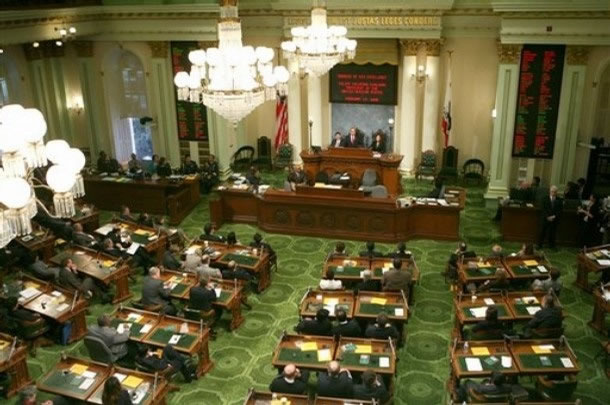California Budget Grows, Makes Big Assumptions, Ignores Structural Problems

The California budget is 5.6% larger this year than last year. This no doubt comes as a surprise to most Californians who foolishly assumed that dire predictions of future financial problems coupled with already bludgeon-like spending cuts would mean Sacramento would be hard at work making the budget smaller. But instead, it’s larger. Welcome to the Looking Glass World of the California Budget, where little is actually as it seems to be, and most everything is distorted too.
California legislators did pass a budget on time this year (so they will continue to be paid), except it’s not really a budget, it’s a $92.1 billion 'spending plan,' whatever that is. Governor Brown may veto it and more than two dozen additional bills remain to be passed. These bills will contain the details as to how the balanced budget mandated under California law will be enacted. I’m guessing that most California families when making a household budget would endeavor to work out the details before announcing they have one, but Sacramento is taking the "high road," apparently wishing to avoid dealing with such bothersome details.
But when it comes to creating new possible sources of revenue, Sacramento positively excels, and provides a myriad of details. It was just a few months ago there were bold predictions that the Facebook IPO would provide a mighty stream of new revenue, but the IPO was a bit of a flop, so those pretend billions in revenue from Facebook stockholders cashing out are no longer being discussed. Instead, they’re on to new possibilities, like assuming a stream of revenue from greenhouse-gas charges when that program hasn’t even started. California lawmakers and budget analysts are confidently assuming revenue from sources that don’t yet exist. They do this every year and are continually wrong.
The spending plan also assumes that a November ballot initiative raising taxes will pass. Given that California voters appear to be in an especially grumpy mood this year, Sacramento should probably think twice about betting the budget on passage of the proposition.
The proposed pseudo-budget increases spending for jails and schools, but even the funding for this is done by sleight-of-hand. The state is borrowing money from local governments, spending it on schools, and promising to pay it back. Local governments will just have to get along with less money until California repays them and how they will do that remains to be seen.
In the final analysis, California's new spending plan is really just moving money around. None of the structural problems, like mandated spending forced by propositions or ever-increasing public pension obligations, are dealt with. The pretend-and-extend continues.



